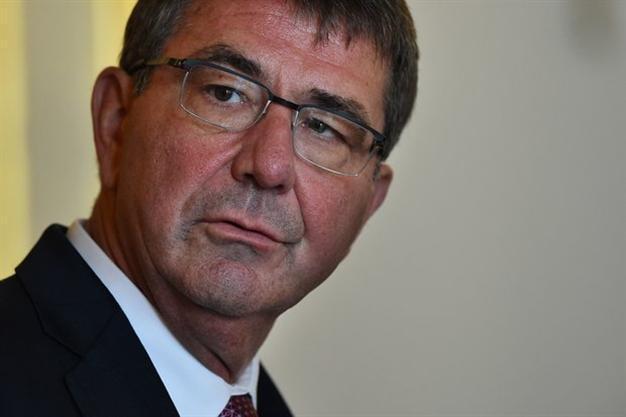Pentagon head: US to change Syrian rebel training program
LONDON – The Associated Press

AFP photo
The United States will change the failed Syrian rebel training program to focus efforts on working with capable Syrian Kurdish and other forces in Syria, U.S. Defense Secretary Ash Carter said Oct. 9.No details were immediately available, but the $500 million program to train and equip moderate Syrian rebels to fight the Islamic State of Iraq and the Levant (ISIL) group is widely considered a failure. It has produced fewer than 100 soldiers, many of whom had fled, been captured or killed in early fighting.
Carter said at a news conference in London that the work the U.S. has done with the Syrian Kurds is a good example of an effective approach with a capable, motivated ground combat force. He did not provide more details.
U.S. officials said the new effort would focus more on embedding recruits with established Kurdish and Arab units, rather than sending them directly into front-line combat. Last week, a commander of one of the U.S.-trained rebel units turned over a half-dozen U.S. vehicles to extremist militants.
“The work we’ve done with the Kurds in northern Syria is an example of an effective approach,” Carter said. “That’s exactly the kind of example that we would like to pursue with other groups in other parts of Syria going forward.”
He called it a “more strategic approach” than what the U.S. has been doing from the beginning.
Instead of fighting ISIL in small units, the U.S.-trained rebels would be attached to larger existing Kurdish and Arab forces. They would be equipped with U.S. communications gear and trained to provide intelligence and to designate ISIL targets for airstrikes in coordination with U.S. troops outside of Syria, the officials said.
The $500 million training program has been beset by a series of embarrassing setbacks. The first group of trainees largely disbanded soon after they were sent into combat; some were captured or killed, while others fled. A second class yielded only a small number of new fighters, drawing criticism from U.S. lawmakers who condemned the program as a joke and a failure.
The top U.S. commander in the Middle East, Gen. Lloyd Austin, acknowledged that the program got off “to a slow start” and he told Congress that he looking at options that would best employ the moderate forces.
Officials have also said the new plan also scales back the number of rebels the U.S. expects to train from the initial 5,400 per year to a much smaller total. It also would streamline the vetting process designed to weed out terrorist infiltrators.
















